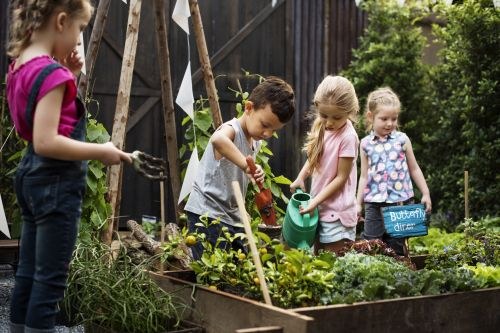Building a common pathway to implement outdoor educational spaces. This was the aim of the "allineaMenti" seminar held on 16 April at the "Giovanni Maria Bertin" Department of Education Sciences (EDU) of the University of Bologna, as part of the post-graduate training course “Designing inclusive outdoor spaces”.
Organised by the University of Bologna in collaboration with the Municipality of Bologna and ARPAE Emilia-Romagna, approximately three hundred participants were able to explore the central themes of the course in relation to the design of educational gardens and green spaces, with a particular focus on participatory processes and an inclusivity.
The day started with the institutional greetings by Ira Vannini, Head of the Department of Education Sciences, and Daniele Ara, School Councillor of the Municipality of Bologna. Prof. Michela Schenetti, Director of the Post Graduate Training Course, then spoke about the guidelines for the creation of gardens and green spaces, presenting those already available and focusing on their foundations, potential and prospects, as well as the educational and health dimensions and the relationship between architecture and pedagogy. The regulatory aspects of the subject were then examined in depth by Christian Mancini, TÜV SÜD course trainer and founder of the Nature Rock association, who illustrated the possibilities offered by current safety regulations and recalled the pedagogical value of implementing public spaces.
The participatory processes that led to the design of gardens and green spaces in Emilia-Romagna and Tuscany were the subject of the first round table of the day with Stefania Bertolini, coordinator of the Centres for Education for Sustainability (Ceas) in Emilia-Romagna. Speeches included those by Petra Benghi (Integrated System Service 0/6 Manager, Unione Comuni della Bassa Romagna), Tania Meoni (educational coordinator of the Pisa area) and Monica Gori (coordinator of the Santo Stefano district, Bologna). Mariateresa Guerra (coordinator of Area Villa Ghigi, FIU Rusconi-Ghigi) illustrated the participatory planning practices that enabled them to outline the guidelines currently applied in the contexts in which they originate.
The second roundtable, coordinated by Rita Ferrarese of Gruppo Nazionale Nidi, focused on divergence, maintenance and care of green spaces. Speakers from a variety of disciplines took part: Corrado Bosello (Educational coordinator) and Lorenzo Feltrin (Engineer in charge of the environment sector) of the Municipality of San Lazzaro, Mariagrazia Squadrani (Head of the Centro Ippogrifo in Rimini) and Matteo Mazzoni (Graduate in Landscape Architecture).
The final debate, coordinated by Michela Schenetti, summarised the ideas that had emerged during the seminar. It brought together the new ideas and highlighted how the network of good practices, created to guarantee accessible spaces for services and schools at all levels, and capable of promoting a non-episodic relationship with the area, is a virtuous opportunity to nurture new perspectives and enhance already consolidated experiences. The event was closed with a speech by Monica Raciti, Head of the Emilia-Romagna Region, who considered the future and called for the development of regional guidelines for the multidisciplinary and participatory design and development of outdoor educational spaces.

